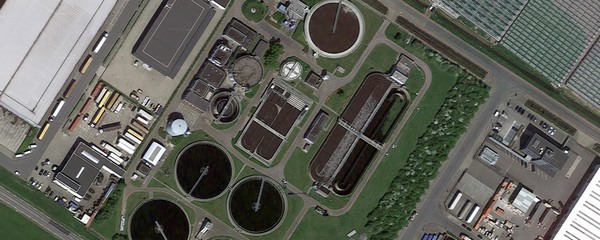In the Netherlands, Westland U.A. water treatment cooperative members held a vote on Tuesday, November 1. They unanimously agreed to begin collectively purifying plant protection products. That will be done at the Nieuwe Waterweg Wastewater Treatment Plant (WWTP) in Hook of Holland. That cleared the way for the cooperative's board to sign an agreement with the Delfland Water Board, which will build the plant.
The Framework Agreement on Water Purification for Greenhouse Horticulture was signed in 2015. Since then, Glastuinbouw Nederland - a Dutch greenhouse horticulture sector business network - has been discussing the possibility of collective purification with the Delfland Water Board. If you could do it anywhere, it is at the Nieuwe Waterweg WWTP.
This plant proportionally receives most of the greenhouse horticulture's water. Twenty-five percent of the total wastewater flow comes from that sector's water. Available technologies were explored, and the support base for collective treatment among businesses was gauged. Once that was done, it became clear that joint treatment should be feasible.

Positive advice
Figuring out the purification method proved more challenging than expected. They could not use ozone to purify the water: new standards for the discharge of bromate made that a no-no. So, they switched to powdered activated carbon purification. The initiative was designated an innovative experiment under the Crisis and Recovery Act. The companies involved have since formed the Westland U.A. water treatment cooperative, and the district water board got a construction team together.
Meanwhile, the Assessment Committee for Treatment Plants in Glasshouse Horticulture issued a positive recommendation, and there is clarity about what investments are needed. This information gave the cooperative's members confidence in a good outcome.
That prompted them to vote in favor of getting the collective water purification project off the ground. It will be the most extensive collective purification of crop protection products. To this end, all wastewater must be purified, which means all household wastewater will also be free of micropollutants such as drug residue.
January 2024
Some 300 greenhouse horticultural companies, totaling about 1,000 hectares, are affiliated with the cooperative. According to current planning, the collective purification will begin in January 2024. Ten years later, in 2034, the water treatment cooperative and district water board's collaboration will be reassessed.
Photo and source text: Glastuinbouw Nederland
